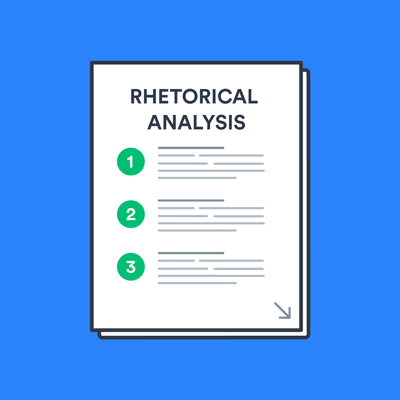All About Rhetorical Analysis Essays: Complete Information
What is it?
A rhetorical analysis essay dives into the “how” and “why” behind a piece of communication. It dissects the text beyond its surface meaning, analyzing the author’s choices in language, structure, and reasoning to understand their purpose and impact on the audience. It’s not about summarizing or agreeing/disagreeing with the content, but about understanding how the author crafts their message.
What are the key elements?
- Text: Your analysis focuses on a specific text, which can be anything from a speech or poem to an advertisement or political cartoon.
- Rhetorical devices: You identify and explain the literary techniques used by the author, such as figurative language, repetition, imagery, logical fallacies, etc.
- Appeals: You analyze how the author appeals to the audience’s emotions (pathos), logic (logos), and credibility (ethos) to achieve their aim.
- Purpose: You discover the author’s intention behind the text – to inform, persuade, entertain, or something else.
- Audience: You consider who the author is writing for and how they adapt their language and style to resonate with them.
- Context: You understand the historical, social, or political context surrounding the text to fully grasp its meaning and impact.
How to write one:
- Choose your text: Select a well-written and thought-provoking piece that offers rich material for analysis.
- Develop a thesis: Formulate a clear statement about the author’s rhetorical choices and their effect on the audience.
- Research: Gather information about the author, audience, and context to support your analysis.
- Organize your essay: Structure your essay with an introduction presenting your thesis, body paragraphs focusing on specific rhetorical elements and their impact, and a conclusion summarizing your findings.
- Provide evidence: Use quotes and examples from the text to illustrate your points and support your claims.
- Analyze, don’t summarize: Go beyond a basic explanation of what the text says and focus on “how” and “why” the author says it.
- Maintain objectivity: Avoid simply agreeing or disagreeing with the author’s message. Focus on analyzing their rhetorical strategies and effectiveness.
- Edit and revise: Polish your essay for clarity, coherence, and proper grammar and punctuation.

Additional resources:
- Sample essays: Read exemplary rhetorical analysis essays to see how others apply the concepts.
- Style guides: Consult writing guides for proper formatting and citation according to your academic style.
- Writing centers: Seek help from your university’s writing center for additional guidance and feedback.
Remember: A strong rhetorical analysis essay goes beyond the surface to uncover the intricate layers of meaning and persuasion woven into a text. It reveals the author’s artistry in crafting their message and its effect on the intended audience.
I hope this information helps you with your rhetorical analysis essay! If you have any specific questions or would like me to delve deeper into any of these aspects, feel free to ask.
